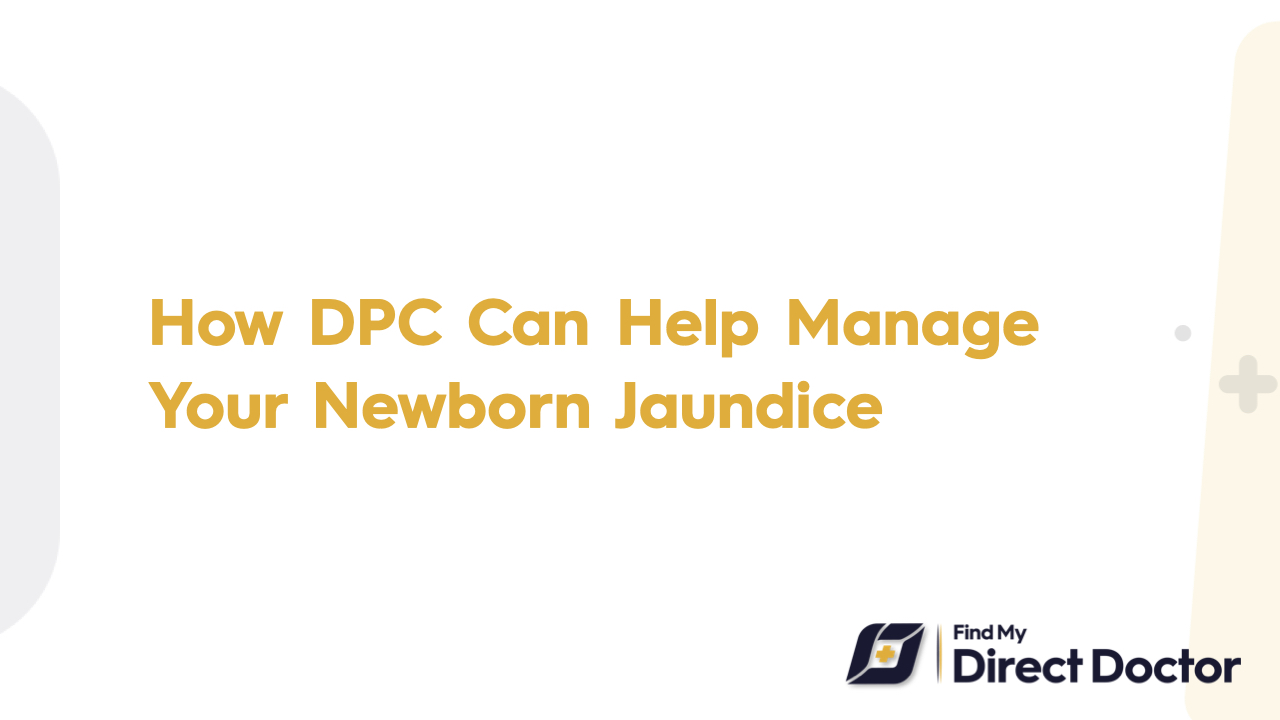



A frequent disease known as newborn jaundice is caused by a high blood amount of bilirubin, which makes a baby's skin and eye whites seem yellow. The breakdown of red blood cells results in the production of bilirubin. Newborns may accumulate bilirubin since their livers are not yet developed enough to handle it effectively. Yellowing of the skin and eyes are signs of infant jaundice, which usually manifests in the first two to three days following birth. While most episodes of jaundice heal on their own with appropriate monitoring and treatment, some can be severe and cause consequences if left untreated.

The best way to treat neonatal jaundice is through Direct Primary Care (DPC), which guarantees ongoing, individualized care for both the infant and the parents. DPC makes it simpler for parents to get regular checkups with pediatricians, which enables early bilirubin level identification and monitoring. If the jaundice worsens, this care paradigm enables prompt therapies like phototherapy. While keeping in regular contact with parents for their comfort, DPC providers can also provide guidance on feeding, hydration, and follow-up appointments to make sure the baby's bilirubin levels are decreasing correctly.
A more individualized and focused approach to care is one advantage of DPC for patients with neonatal jaundice. In order to ensure that the baby's jaundice is appropriately handled, parents can have more time to discuss their concerns because DPC frequently entails fewer patients and longer consultations. In addition to providing both immediate and long-term support, DPC providers have a stake in preserving the child's long-term health. As the infant grows and develops, this proactive and consistent care plan guarantees that they are prospering and helps prevent issues related to jaundice.
The goal of Direct Primary Care's individualized treatment for infant jaundice is to comprehend each baby's unique demands. DPC providers will measure bilirubin levels, evaluate the degree of jaundice, and modify treatment regimens in response to the baby's response. The baby will receive the proper care thanks to this customized management plan, which may include phototherapy, making sure the baby is fed enough, or offering advice on how to manage symptoms at home. Parents can feel secure about their baby's health and development thanks to DPC's emphasis on continuity of care and patient-centered techniques.
Next Post